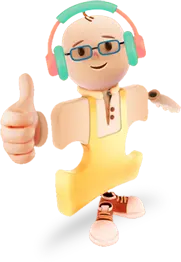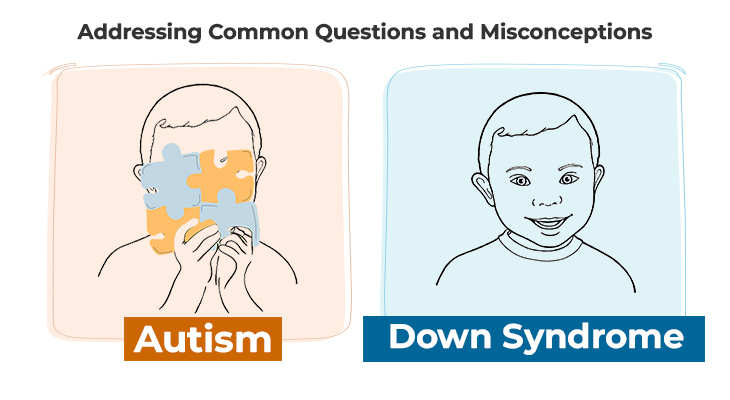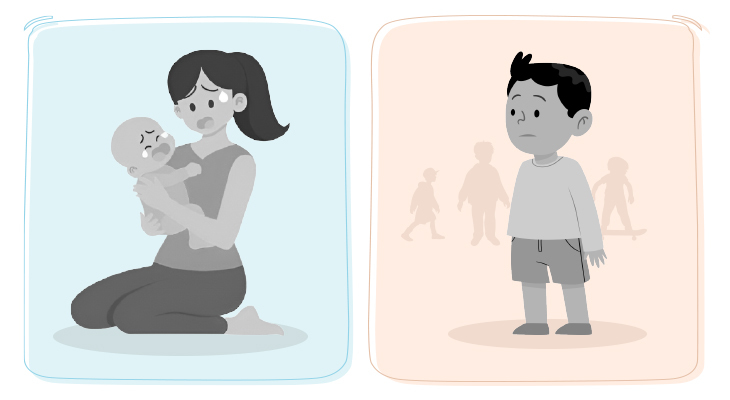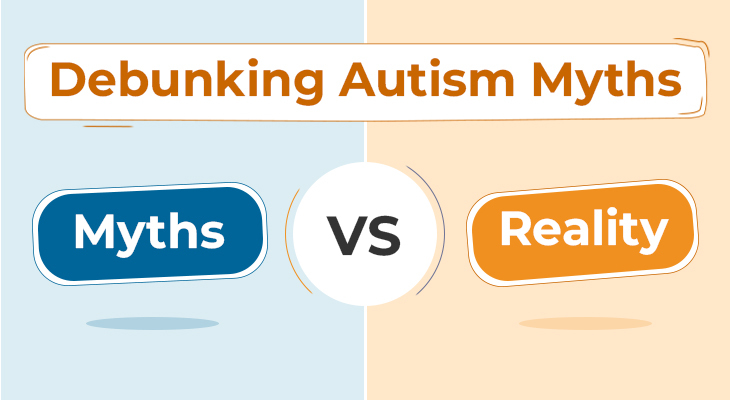Toys are an essential part of a child’s development. They provide opportunities for kids to learn, grow, and have fun. Toys can help kids develop their cognitive, physical, social, and emotional skills.
Many parents today prefer toys that are very learning oriented. While this is okay sometimes, it is important to remember that not all toys need to be educational. Kids also need toys that they can simply enjoy and play with for fun.
Play is essential for all children, regardless of their culture, gender, or neurological status. Play is especially important for kids with autism as it helps them reduce stress and anxiety and improve their overall well-being.
When kids with autism have fun playing, they are more likely to be engaged and motivated. This can lead to better developmental outcomes. Additionally, having fun helps kids with autism build positive associations with play. This can make them more likely to play in the future, which can lead to even more benefits.
If you find yourself shopping for a child with autism spectrum disorder, it’s important to choose toys that are fun, engaging, and developmentally appropriate. In this blog, we dive into how to choose toys for autistic children.
Toys for Autistic Children by Developmental Milestones and Autism Levels
Autism is a spectrum disorder, which means that there is no one-size-fits-all approach to choosing toys. However, there are some general guidelines that can help you decide what to pick up.
First, consider the child’s developmental milestones. Many autistic children have developmental delays, and toys that specifically assist in reducing these delays can be very helpful. For example, if a child is struggling with fine motor skills, you might choose toys that require them to pick up small objects or manipulate small parts.
Another important factor to consider is the level of autism. Autistic children can be divided into two broad categories: High-functioning and low-functioning.
- High-functioning autistic children are typically more independent and have fewer developmental delays. They may enjoy toys that are more complex and require more abstract thinking skills. Construction toys (such as Lego building blocks), puzzles, board games, arts and crafts supplies, and educational toys are all popular choices for high-functioning autistic children.
- Low-functioning autistic children, on the other hand, may need more assistance in their daily lives and may benefit from sensory toys that provide stimulation and comfort. For them, consider choosing toys such as fidget toys, weighted blankets, light-up toys, talking dolls, musical toys, pegboards, puzzles with large pieces, stuffed animals, and dolls.
What to Look for in Toys for Autistic Kids?
The best way to choose a holiday gift for a child with autism is to consider the child’s needs and interests. It is always best to start by talking to the parents. They can give you specific recommendations and also warn you of any potential health or safety issues. For example, if the child mouths toys, choose toys without small parts that could break off and become a choking hazard.
High-Interest Toys for Autistic Children
Children with autism can become very interested in one thing. This is known as a special interest. Special interests can be anything from cars to dinosaurs to space exploration. While some people may see special interests as a negative, they can actually be very beneficial for children with autism. Special interests can help children with autism learn new skills and develop their problem-solving skills. For example, if a child with autism loves trains, a train set can be used for categorization, and train schedules can make the concept of time less abstract. Toys that autistic children find interesting are fun for them and therefore especially beneficial. Below are examples of toys that support common special interests in children with autism:
- Cars: Toy cars, car tracks, car-themed building blocks, books about cars, car puzzles, and car racing games.
- Trains: Toy trains, train tracks, train-themed building blocks, books about trains, train puzzles, and train station playsets.
- Lego: The repetitive nature of Lego building blocks can be calming and relaxing, and help autistic children to develop their focus and concentration skills over time.
- Dinosaurs: Dinosaur toys, dinosaur-themed building blocks, books about dinosaurs, dinosaur puzzles, and dinosaur figurines.
- Space exploration: Space rockets, astronaut figures, space station playsets, books about space exploration, and solar system puzzles.
- Animals: Animal figures, animal-themed building blocks, books about animals, animal puzzles, and animal playsets.
Toys That Provide Sensory Stimulation (Sensory Toys for Autistic Children)
Autistic children often enjoy toys that provide sensory stimulation which can be very calming and soothing for autistic children. This can include toys with different textures, sounds, colors, and lights. Here are some examples of high-interest sensory toys for autistic children
- Texture toys: Toys with different textures can help autistic children explore their sense of touch. Some examples include kinetic sand, playdough, and textured balls.
- Sound toys: Toys that make different sounds can help autistic children explore their sense of hearing. Some examples include musical instruments, rattles, and crinkle books.
- Color toys: Toys with bright and vibrant colors can help autistic children explore their sense of sight. Some examples include color blocks, stacking cups, and rainbow spinners.
- Light toys: Toys with lights can help autistic children explore their sense of sight. Some examples include fiber optic lights, light-up fidget balls, and lava lamps.
- Fidget toys: Fidget sensory toys are a great way for autistic children to manage their sensory needs and anxiety. They can provide a calming and soothing effect, and can also help to improve focus and concentration.

Autistic children often enjoy toys that provide sensory stimulation. These toys can be very calming and soothing, and can help children to focus and learn. Examples of sensory toys include fidget spinners, pop-it toys, and sensory balls.
#Autism #SensoryToys #Calming #Soothing
Toys That Increase Focus
Many autistic children enjoy toys that allow them to engage in sustained play. This type of play can be calming and soothing for them. Here are some examples of high-interest sustained play toys for autistic children:
- Puzzles: Puzzles are a great way for autistic children to practice their problem-solving skills and fine motor skills. There are many different types of puzzles available, so you can find one that is appropriate for your child’s age and developmental level.
- Building blocks: Building blocks are another great toy for sustained play. Autistic children can use building blocks to create different structures and designs.
- Sorting toys: Sorting toys can help autistic children develop their cognitive skills and fine motor skills. Some examples of sorting toys include shape sorters, color sorters, and bead sorters.
- Matching toys: Matching games are a great way for autistic children to learn about different patterns and relationships. Some examples of matching games include memory games, matching cards, and dominoes.

Sustained play can be calming and soothing for autistic children. Toys such as puzzles, building blocks, and sorting toys can provide this type of play.
#Autism #RepetitivePlay #Calming #Soothing #Puzzles #BuildingBlocks #SortingToys
Open-Ended Play Toys for Autistic Children
Also known as no-wrong-way-to-play toys, these toys can be used in a lot of different ways and are among the best toys for kids with autism. Open-ended toys, such as art supplies, dress-up clothes, and play kitchens, can encourage creativity and imagination.
- Playdough: Playdough is a classic open-ended toy that can be used to create anything the child can imagine.
- Pretend play toys: Pretend play toys, such as play kitchens, doctor kits, and tool kits, allow children to imitate the world around them and to develop their social skills.
- Dress-up clothes: Dress-up clothes are a fun way for children to express their creativity and imagination. They can be used to dress up as different characters or to create their own unique looks.

Download Download & share this infograph in your network [Free Download]
Conclusion
It is important to remember that the most important thing is for kids with autism to have fun while playing. When they are having fun, they are more likely to learn and grow. So choose toys that are appropriate for your child’s developmental level and interests, and let them lead the way.
For information on autism monitoring, screening and testing please read our blog.
References
Image Credits:
- High Interest Toys – Train Set from Walmart.com
- High Interest Toys – Car Set from Amazon.com
- High Interest Toys – Dinosaur set from Walmart.com
- High Interest Toys – Space exploration from Walmart.com
- Sensory Toys – Texture Toys from Amazon.com
- Sensory Toys – Sound Toys from Walmart.com
- Sensory Toys – Colour Toys from Walmart.com
- Sensory Toys – Light Toys from Amazon.com
- Sensory Toys – Fidget toy from Amazon.com
- Toys that encourage sustained play – Puzzles from Amazon.com
- Toys that encourage sustained play – Building blocks from Walmart.com
- Toys that encourage sustained play – Sorting Toys from Amazon.com
- Toys that encourage sustained play – Matching Toys from Walmart.com
- Open-ended-play-toys – Play Dough from Amazon.com
- Open-ended-play-toys – Pretend Play Sets from Walmart.com
- Open-ended-play-toys – Dress-up Clothes from Amazon.com
- Lego set from Target.com




